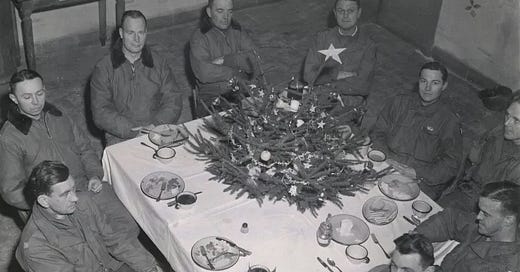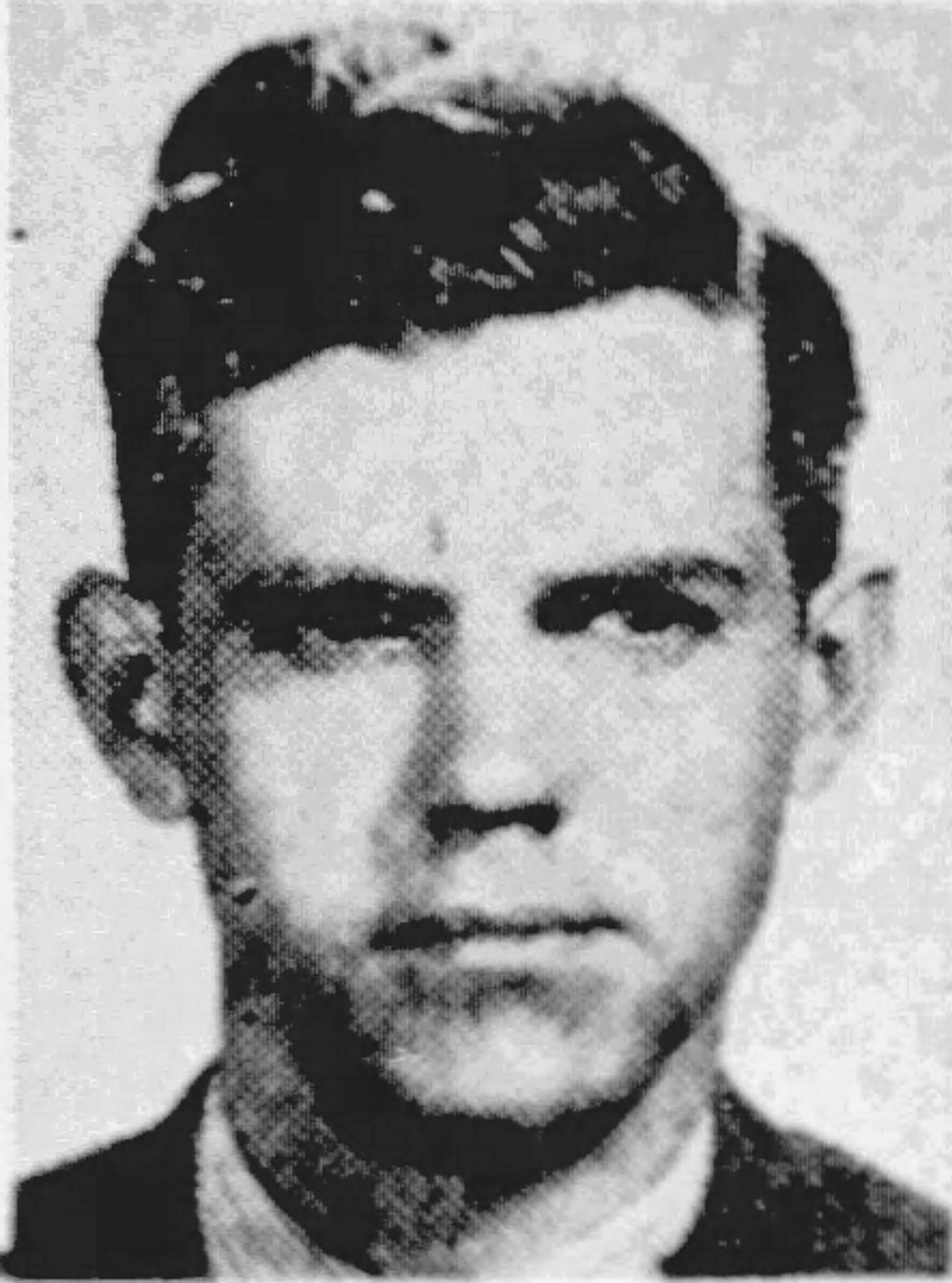A different kind of Christmas story
Robert Cromie’s story for the Christmas Day editions of the Chicago Tribune began in the style of untold thousands of other holiday newspaper pieces through the years.
“The roads are lined with Christmas firs, beautifully decorated with snow, and there are clumps of mistletoe clinging high to other trees,” Cromie wrote.
A lovely scene, soon to give way to reality, since Cromie was writing on Christmas Eve 1944 in the midst of the Battle of the Bulge.
He continued the above sentence: “but most of Christmas is being with those you love in a place you love, and Christmas on the wrong side of the ocean isn’t Christmas, no matter how hard you pretend.”
The latter sentiment prevailed across the package of stories that ran in the Tribune on Dec. 25, 1944. Six of the newspaper’s war correspondents had filed a short snapshot of what the fourth Christmas of the war would look like in the field.
Like Cromie, Jack Thompson was covering Allied efforts to beat back the surprise German attack through Belgium and Luxembourg that had begun Dec. 16.
My assignment had said to send a story about G.I. plans for Christmas Eve. That was before Field Marshal von Rundstedt’s counteroffensive changed everyone’s plans.
Out on the front lines there were no plans or even thoughts about Christmas. The business of staying alive and killing Germans occupied every man’s attention.
“Peace on earth, goodwill to men” was a forgotten childhood hymn. You couldn’t even ask these men about Christmas.
Thompson’s words inspired the headline that ran above his and Cromie’s stories on the front page:
Not exactly the spirit of the season, but certainly befitting the mindset of the men on the front lines. The sooner they accomplished those goals, the sooner they could go home.
On the other side of the world from Cromie and Thompson, their colleague Arthur Veysey sat with men of the 1st Cavalry Division on Leyte. They were chatting around their foxholes about how quiet it was, and one of them suddenly realized it was Christmas Eve. They had been in the field for 42 days, so it was easy to lose track.
“Tonight’s peace has no connection with the holidays,” Veysey noted. “The Japs are not much interested. After two months of bitter fighting, they have all been killed or driven out of these hills, so peace reigns — through guns, not goodwill.”
If nothing else, the holiday promised the potential of a special meal, should local conditions allow it. Clay Gowran struck a battle-weary tone in his short transmission from Greece:
“A handful of American soldiers in Athens, all members of the air transport command stationed here, will gather in their cold, bullet-riddled hotel Christmas night for a trukey dinner — provided the plane carrying the turkey arrives on time.”
While the the correspondents’ bitterness is understandable, they did single out moments of cheer when possible. However bleak the situation on the ground, marking the holiday in some form or fashion helped preserve a bit of humanity.
Cromie found one of those men in his area:
“We went out past Christmas trees decorated with little hommade stars cut out of old tin cans, climbed the stairs, and found a chilly room in which Pvt. Robert Mastin of Detroit, Mich., has a little Christmas tree decorated with imitation snow made of flour and salt set against a waxed paper backdrop. He also had a hand-sized figure of Santa Claus made of mud and clay with cotton whiskers and a sprig of evergreen in his hand.
“‘I’ve got a wife and a five month old daughter — the daughter I’ve never seen — at home,’ Mastin said. ‘I kind of put the tree up for that reason — to keep up my spirits.’”
That vignette was the exception rather than the rule, though. Thompson closed his piece with some sleight of hand, set up by soldiers turning to each other in wonder at the sound of music, the unmistakable melody of “Silent Night” drifting through the trees … “but the voices of the massed choir were German. …
“The GIs tightened their grip on their rifles, laughed bitterly, and cursed the ‘krautheads.’”
Cromie’s conclusion was even more downbeat, sharing an anecdote from a soldier who had received a letter telling him his mother had died and his ex-wife had married a 4-F before wrapping up in his own words:
Sorry if this isn’t a very cheerful Christmas story, but in spite of the trees and little signs in the Red Cross club reading “Joyeux Noel” and bands playing here and there and those lovely firs and one guy we saw with a sprig of mistletoe under the shoulder strap of his jacket, it’s a long way from here to there, and there’s nothing anybody can do about it.







